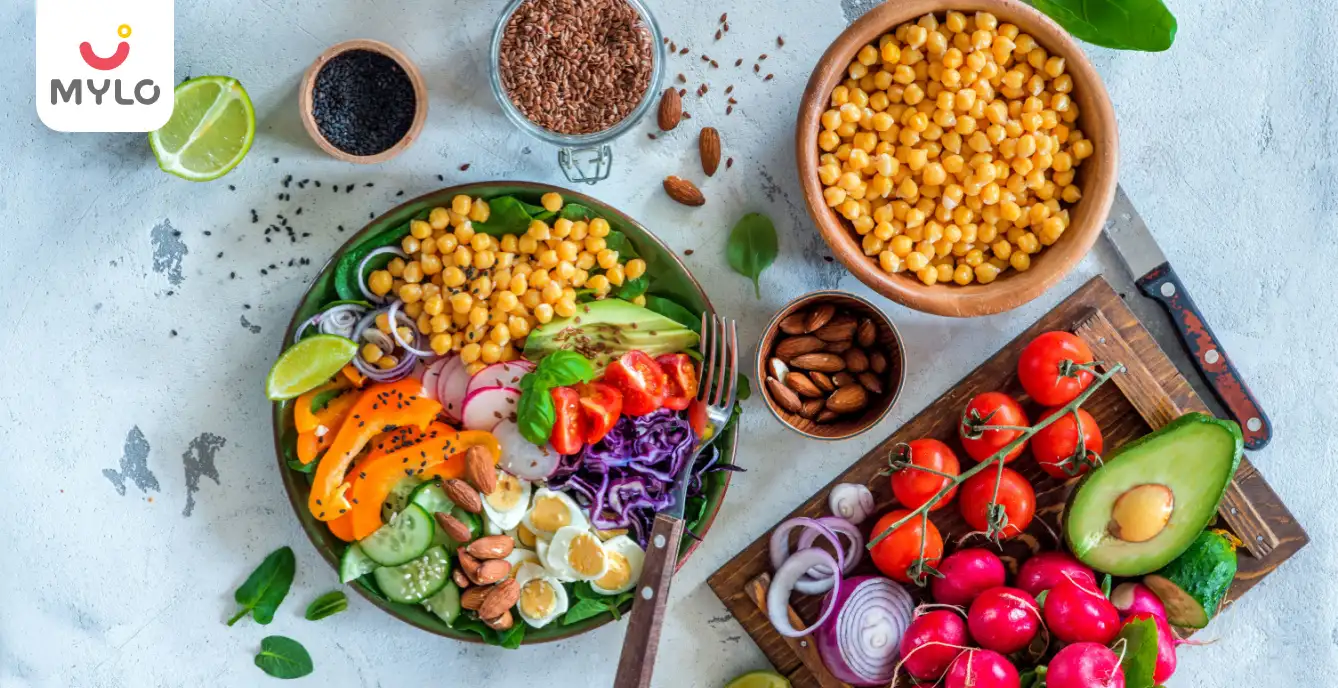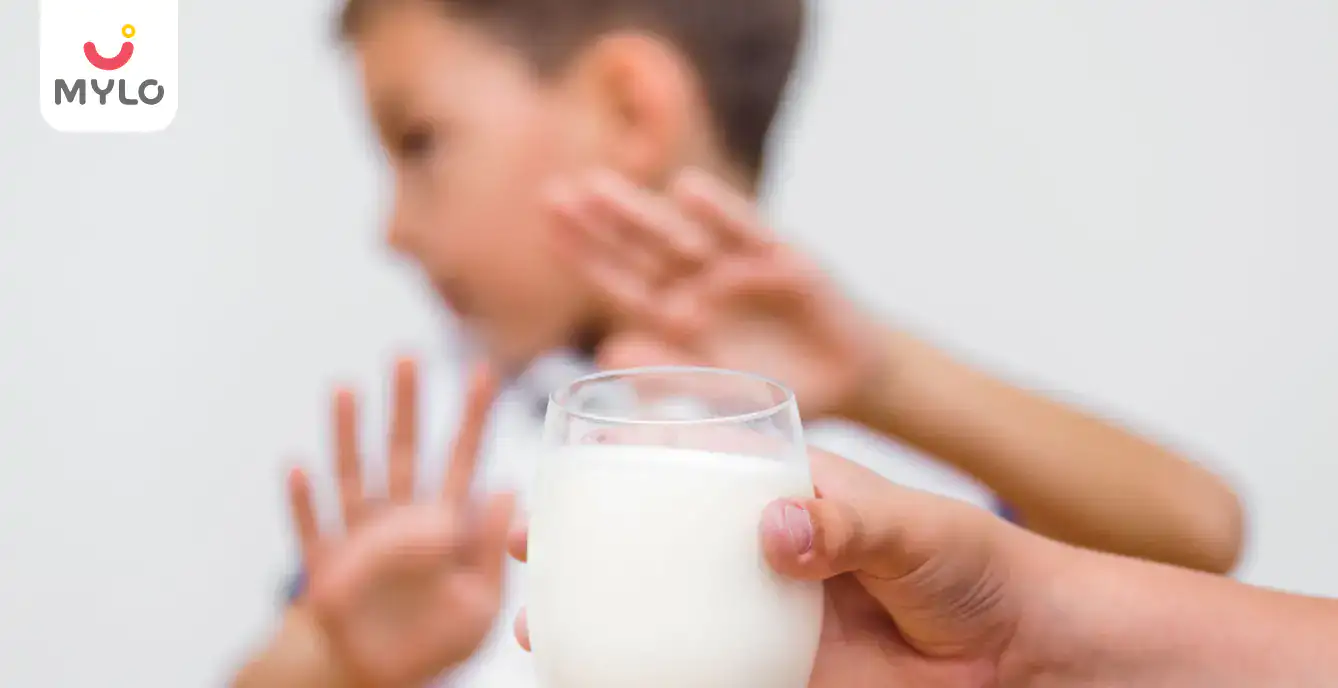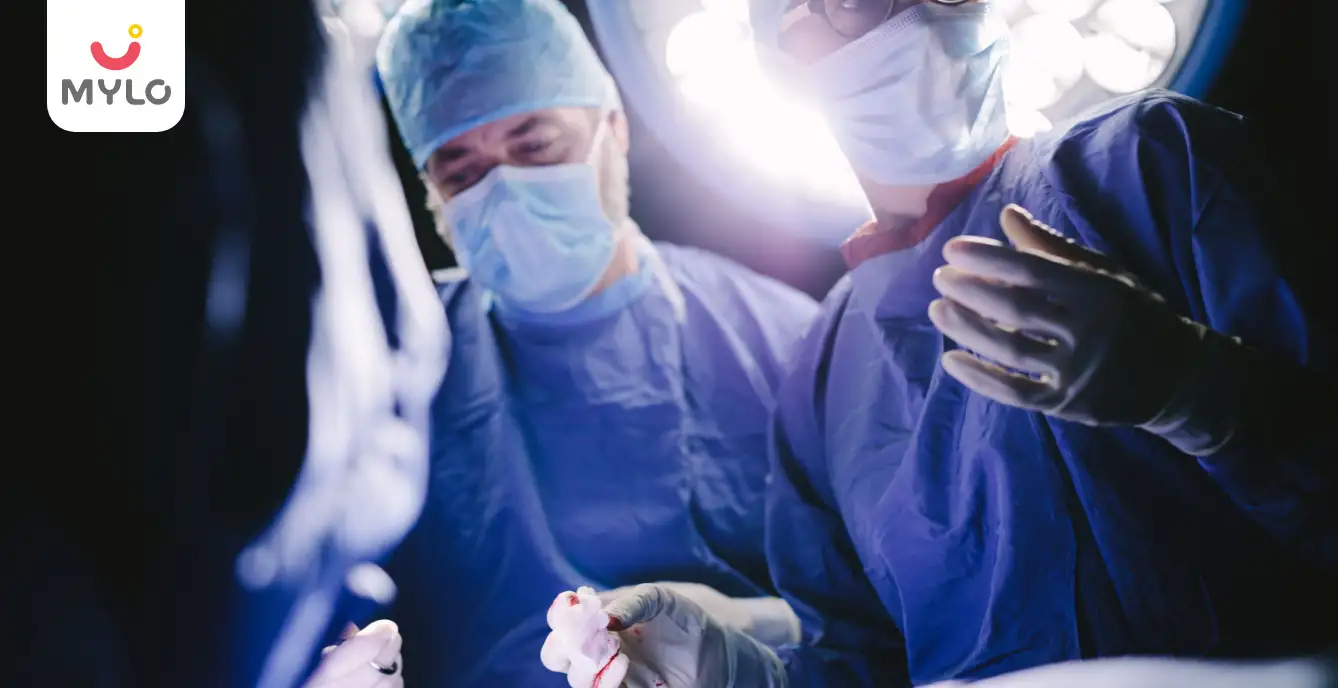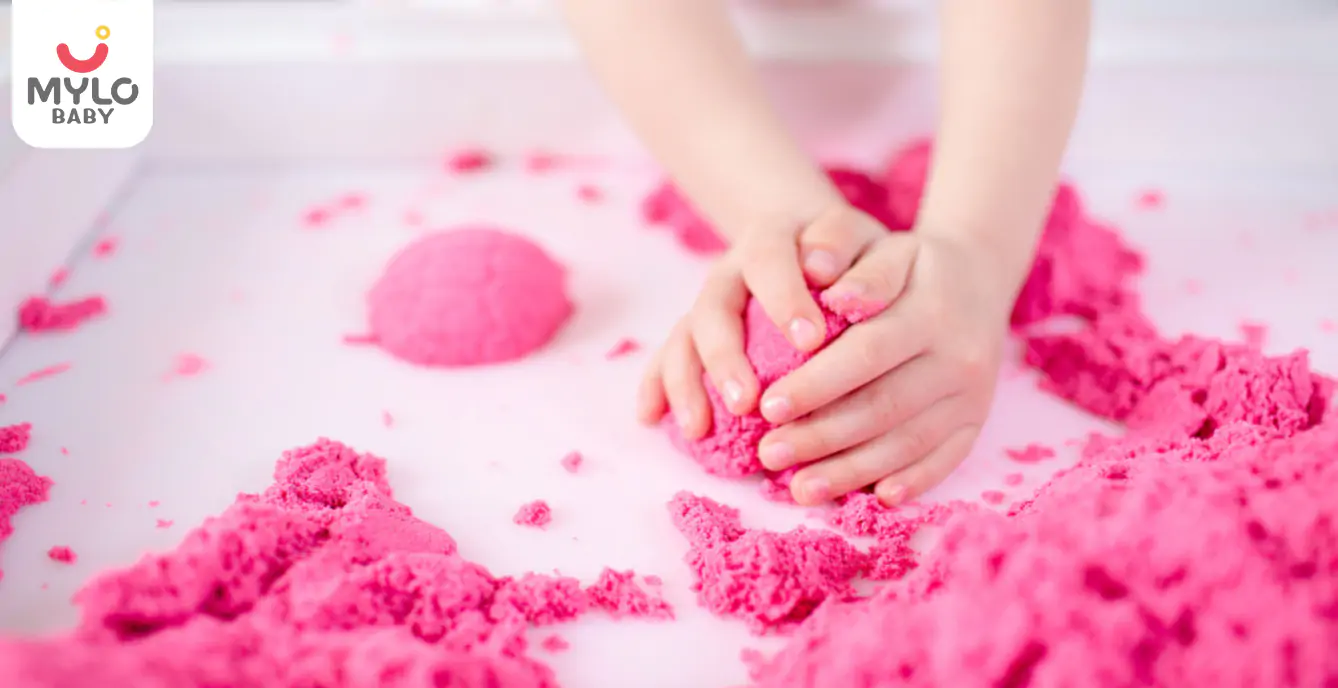Get MYLO APP
Install Mylo app Now and unlock new features
💰 Extra 20% OFF on 1st purchase
🥗 Get Diet Chart for your little one
📈 Track your baby’s growth
👩⚕️ Get daily tips

OR


Article Continues below advertisement
- Home

- In Vitro Fertilization (IVF)

- How Many Injections for IVF Treatment Do You Really Need
In this Article
- How Many Injections for IVF Treatment are Required?
- 1. Gonadotropin-releasing hormone agonists (GnRH agonists)
- 2. Follicle-stimulating hormone (FSH) injections
- 3. Human chorionic gonadotropin (hCG) injections
- 4. Progesterone injections
- What are the Uses of IVF Injection?
- 1. Ovarian Stimulation
- 2. GnRH antagonists
- 3. HCG
- 4. Luteal Phase Support
- Common Types of Injections Administered in IVF
- What are the Common IVF Injection Sites?
- What are the Factors Affecting the Number of IVF Injections?
- 1. Treatment Protocol
- 2. Individual Patient Characteristics
- 3. Treatment Adjustments
- 4. Medication Type
- Are There Any IVF Injections Side Effects?
- What is the IVF Injection Cost in India?
- Tips for Managing IVF Injections
- 1. Educate Yourself
- 2. Follow Instructions
- 3. Create a Schedule
- 4. Rotate Injection Sites
- 5. Manage Discomfort
- 6. Stay Positive
- Closing Thoughts
In Vitro Fertilization (IVF)
How Many Injections for IVF Treatment Do You Really Need
Updated on 19 July 2023
In-vitro fertilization (IVF) treatment involves the inclusion of injections as a crucial component of the treatment protocol. Frequently, patients experience apprehension regarding the multiple needle insertions and seek comprehensive information regarding various aspects, including how many injections for IVF treatment, IVF injections sites, IVF injections side effects and much more. This write-up will clear the air about IVF injections. Read till the end to know more!
How Many Injections for IVF Treatment are Required?
The number of injections required for IVF (In Vitro Fertilization) treatment can vary depending on various factors, including the specific protocol prescribed by the fertility specialist and the individual's response to the treatment. The number of injections can go up to 90. Here are some common types of injections used in IVF treatment:
1. Gonadotropin-releasing hormone agonists (GnRH agonists)
These injections are typically administered in the form of a daily subcutaneous (under the skin) injection for a specific duration, usually around 10-14 days. GnRH agonists help prevent premature ovulation and synchronize the timing of follicle growth.
Article continues below advertisment
2. Follicle-stimulating hormone (FSH) injections
FSH injections are given daily, usually alongside or following the GnRH agonist injections. These injections help stimulate the development and growth of multiple ovarian follicles, which contain the eggs.
3. Human chorionic gonadotropin (hCG) injections
These injections are given to trigger the final maturation and release of the eggs from the follicles. It is typically administered approximately 36 hours before the egg retrieval procedure.
4. Progesterone injections
After the egg retrieval, progesterone injections are often used to support the lining of the uterus and prepare it for embryo implantation. These injections are usually given daily or as prescribed by the fertility specialist until a pregnancy test is performed.
What are the Uses of IVF Injection?
IVF injection uses are as follows:
1. Ovarian Stimulation
IVF injections are primarily used to stimulate the ovaries to produce multiple mature eggs.
Article continues below advertisment
2. GnRH antagonists
Certain injections like gonadotropin-releasing hormone agonists (GnRH agonists) or antagonists (GnRH antagonists) may be administered to prevent premature ovulation and to control the timing of follicle development.
3. HCG
Once the ovarian follicles have reached an appropriate size, an injection of human chorionic gonadotropin (hCG) is given.
4. Luteal Phase Support
Progesterone injections are commonly used to provide hormonal support during this phase, ensuring that the uterine lining remains receptive for successful implantation and early pregnancy development.
Common Types of Injections Administered in IVF
In IVF (In Vitro Fertilization) treatment, various types of injections are commonly administered to support and optimize the fertility process. Here are the common types of injections used in IVF:
-
Follicle-Stimulating Hormone (FSH) Injections
Article continues below advertisment
-
Gonadotropin-Releasing Hormone (GnRH) Agonist Injections
-
Gonadotropin-Releasing Hormone (GnRH) Antagonist Injections
-
Human Chorionic Gonadotropin (hCG) Injections
-
Progesterone Injections
You may also like : Do All Women Require Folic Acid & Progesterone Tablets After A Positive Pregnancy Test Result?
Article continues below advertisment
What are the Common IVF Injection Sites?
In IVF (In Vitro Fertilization) treatments, various medications and hormones are administered through injections to stimulate the ovaries, control the menstrual cycle, and prepare the body for egg retrieval and embryo transfer. The injections are typically given subcutaneously (under the skin) or intramuscularly (into the muscle). Here are some common injection sites used in IVF:
-
Abdomen
-
Thigh
-
Buttocks
What are the Factors Affecting the Number of IVF Injections?
The number of IVF (In Vitro Fertilization) injections required can vary based on several factors, including:
Article continues below advertisment
1. Treatment Protocol
Different IVF protocols exist, such as long protocol, short protocol, antagonist protocol, and others.
2. Individual Patient Characteristics
Factors specific to the individual patient like woman's age, ovarian reserve (the number and quality of eggs), response to previous fertility treatments, and any underlying medical conditions affecting fertility.
3. Treatment Adjustments
During the course of IVF treatment, adjustments to the medication regimen may be required based on how the ovaries are responding.
4. Medication Type
IVF treatment involves different types of medications and can influence the number of injections required.
You may also like : Diminished Ovarian Reserve: How This Condition Can Affect Your Chances of Pregnancy
Article continues below advertisment
Are There Any IVF Injections Side Effects?
Now that we know how many injections for IVF treatment are required, it’s important to understand their potential side effects. These side effects can vary from person to person and depend on the specific medications used. Some common IVF injections side effects are:
-
Redness, swelling, itching, or pain at the injection site
-
Ovarian Hyperstimulation Syndrome (OHSS) can lead to abdominal pain, bloating, nausea, vomiting, and weight gain.
-
Mood swings, irritability, and emotional distress
-
Breast tenderness
Article continues below advertisment
-
Headaches
-
Fatigue
-
Allergic reactions such as rash, itching, or difficulty breathing.
It's important to note that these side effects are not experienced by everyone, and many individuals undergo IVF treatment with minimal discomfort.
Article continues below advertisment
What is the IVF Injection Cost in India?
The cost of IVF injections in India can vary depending on several factors, including the type and dosage of medications prescribed, the number of injections required, and the specific fertility clinic or hospital you choose. Additionally, the cost can vary from one region to another within India.
Generally, the cost of IVF injections in India can range from INR 10,000 to INR 50,000 or more per cycle. It's important to note that this cost typically includes the medications only and does not cover other aspects of the IVF treatment, such as consultations, ultrasounds, blood tests, egg retrieval, embryo transfer, and laboratory fees.
Tips for Managing IVF Injections
Managing IVF injections can be a new and challenging experience for many individuals. Here are some tips to help you navigate the process:
1. Educate Yourself
Learn about the injections you will be administering. Understand their purpose, the proper technique for administration, and any potential side effects.
2. Follow Instructions
Carefully read and follow the instructions provided by your healthcare provider or fertility clinic.
Article continues below advertisment
3. Create a Schedule
Develop a schedule for your injections and stick to it. Set reminders on your phone or use a calendar to ensure you don't miss any doses.
4. Rotate Injection Sites
Rotate the injection sites as recommended by your healthcare provider. This helps prevent discomfort, bruising, or tissue irritation at any single site. Keep a record of the sites used to ensure proper rotation.
5. Manage Discomfort
Apply a warm compress to the injection site before administering the injection to help minimize discomfort.
6. Stay Positive
IVF can be a rollercoaster journey with ups and downs. Stay positive, remain patient, and remember that everyone's experience is unique.
Closing Thoughts
How many injections for IVF treatment can vary depending on various factors, including the individual's specific fertility issues and the treatment protocol recommended by their fertility specialist. In general, IVF treatment involves a series of injections to stimulate the ovaries for the production of multiple eggs, followed by injections to trigger ovulation and support the implantation process.
Article continues below advertisment
References
1. Choe, J., Archer, J. S., & Shanks, A. L. (2020). In Vitro Fertilization. PubMed; StatPearls Publishing.
2. Hsu, C. C., Hsu, I., Chang, H. H., Hsu, R., & Dorjee, S. (2021). Extended Injection Intervals of Gonadotropins by Intradermal Administration in IVF Treatment.



Written by
Madhavi Gupta
Dr. Madhavi Gupta is an accomplished Ayurvedic doctor specializing in Medical content writing with an experience of over 10 years.
Read MoreGet baby's diet chart, and growth tips

Related Articles
Related Questions
Hello frnds..still no pain...doctor said head fix nhi hua hai..bt vagina me pain hai aur back pain bhi... anyone having same issues??
718 views
Kon kon c chije aisi hai jo pregnancy mei gas acidity jalan karti hain... Koi btayega plz bcz mujhe aksar khane ke baad hi samagh aata hai ki is chij se gas acidity jalan ho gyi hai. Please share your knowledge
727 views
I am 13 week pregnancy. Anyone having Storione-xt tablet. It better to have morning or night ???
730 views
Hlo to be moms....i hv a query...in my 9.5 wk i feel body joint pain like in ankle, knee, wrist, shoulder, toes....pain intensity is high...i cnt sleep....what should i do pls help....cn i cosult my doc.
733 views
Influenza and boostrix injection kisiko laga hai kya 8 month pregnancy me and q lagta hai ye plz reply me
743 views
RECENTLY PUBLISHED ARTICLES
our most recent articles

Conception
IUI Failure Symptoms & Reasons: Understanding Why IUI Fails & What to Do Next

Celebrate Breast Feeding Week
Fever During Breastfeeding: Tips from Experts for New Moms

Diet & Nutrition for Mothers
Indian Food to Increase Breast Milk: Everything You Need to Know

Lactose Intolerance
Lactose Intolerance in Babies: A Parent’s Guide to Identifying and Managing it

Medical Procedures
TESA IVF: How This Procedure Can Help You Achieve Your Dream of Parenthood

Sensory Development
How Can You Encourage Sensory Play for Your Baby and What are Its Benefits?
- After How Many Weeks IVF Pregnancy Is Safe: Understanding The Ideal Timeline
- Exploring the Senses: 9 Incredible Benefits of Sensory Play for Your Child's Development
- The Ultimate Guide to Childproofing Your Home
- Start Their Love for Reading Early: The Best Books for Baby's First Library
- CMPA (Cow's Milk Protein Allergy): Identifying Symptoms and Understanding Treatment
- Birth Control Options While Breastfeeding: Balancing Parenthood and Contraception
- Period During Breastfeeding What Every New Mother Should Know
- Role of Stories and Rhymes in Your Baby’s Brain Development
- Intracytoplasmic Sperm Injection (ICSI) How It Can Help Treat Male Infertility
- Baby Sleeping While Breastfeeding: Understanding the Causes and Solutions
- Lump in Breast During Breastfeeding How to Identify, Treat, and Prevent Lump Formation
- Understanding Down Syndrome: A Comprehensive Guide for Parents
- No Breast Milk After Delivery: What to Do & What are the Factors Responsible
- Lactation Failure: A Comprehensive Guide to Understanding the Causes and Solutions


AWARDS AND RECOGNITION
Mylo wins Forbes D2C Disruptor award
Mylo wins The Economic Times Promising Brands 2022
AS SEEN IN
















At Mylo, we help young parents raise happy and healthy families with our innovative new-age solutions:
- Mylo Care: Effective and science-backed personal care and wellness solutions for a joyful you.
- Mylo Baby: Science-backed, gentle and effective personal care & hygiene range for your little one.
- Mylo Community: Trusted and empathetic community of 10mn+ parents and experts.
Product Categories
baby carrier | baby soap | baby wipes | stretch marks cream | baby cream | baby shampoo | baby massage oil | baby hair oil | stretch marks oil | baby body wash | baby powder | baby lotion | diaper rash cream | newborn diapers | teether | baby kajal | baby diapers | cloth diapers |






